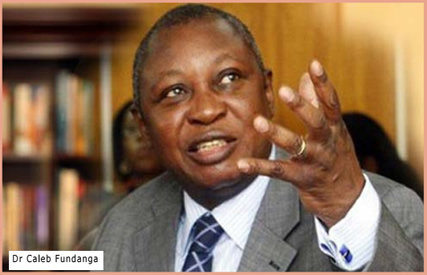- November 3, 2016
- Posted by: admin
- Category: Current News

By Tawanda Musarurwa, BH24
 External borrowing is one option that Zimbabwe has to boost its fiscal space, but prior experiences in Sub Saharan Africa has not all been positive, an expert has said.
External borrowing is one option that Zimbabwe has to boost its fiscal space, but prior experiences in Sub Saharan Africa has not all been positive, an expert has said.
At present Zimbabwe’s fiscal space is extremely constrained with civil service wages gobbling around 96.8 percent of total revenues, effectively constraining capital expenditure on critical infrastructure and economic projects.
According to MEFMI Executive Director Dr Caleb Fundanga, using borrowing to increase fiscal space has both positives and negatives. “Generally, borrowing can create fiscal space and we have seen for instance that between 2004 and 2016, Mozambique borrowed around $1 billion and that’s the time when the economy started to grow by between 7 and 8 percent annually. It was able to do this after getting debt relief and we have seen a number of countries that has done this,“ he said.
In the region countries including Ghana, Zambia, Uganda and Rwanda, among others, have followed this route. However Dr Funanga cautioned: “But I must warn here that the results from this heavy borrowing by countries that achieved debt relief has been mixed, for example Zambia is slipping into heavy indebtedness again.“
He was speaking at a high-level Macroeconomic seminar for enhancing fiscal space for the 2017 National Budget.
Zimbabwe is currently engaging multilateral financial institutions to clear its arrears to them and possibly negotiate for a new financing programme once the debts are cleared.
International Monetary Fund resident representative Mr Christian Beddes said the country needed a. ‘bold’ reform programme in order to boost its fiscal space.
“What Zimbabwe needs is a bold reform programme that addresses current economic and resource mobilisation challenges, which can be supported by the international financial community,” he said.
Please click here for the presentation by Dr Fundanga
